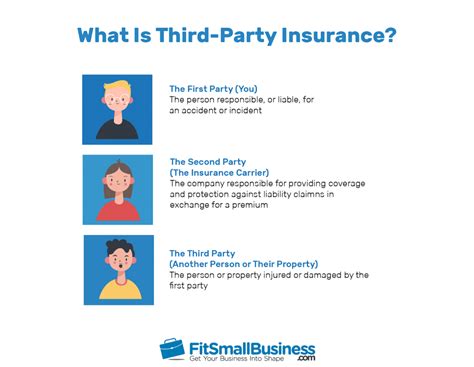Learn about the benefits of group health insurance, eligibility criteria, and how to choose the right plan for your business. Understand how group health insurance works.
Understanding Group Health Insurance
Contents
Group health insurance is a type of health coverage that is offered to a group of people, typically employees of a company or members of an organization. This type of insurance plan provides coverage for medical expenses, including doctor visits, hospital stays, prescription medications, and other healthcare services. Group health insurance plans are often more affordable than individual plans because the risk is spread out among the members of the group, leading to lower premiums and out-of-pocket costs.
One of the key features of group health insurance is that it is typically provided by an employer or organization, with the cost shared between the employer and the employees. This makes it a valuable benefit for employees, as they can access healthcare coverage at a lower cost than they would be able to obtain on their own. Employers may also offer group health insurance as a way to attract and retain top talent, as well as to promote the health and well-being of their workforce.
Group health insurance plans can vary widely in terms of coverage and cost, so it’s important for employees to carefully review their options and choose the plan that best meets their needs. Some plans may offer comprehensive coverage with a wide network of providers, while others may have more limited coverage and provider options. When selecting a group health insurance plan, it’s important to consider factors such as monthly premiums, deductible amounts, and copayments, as well as the specific services and medications that are covered.
Overall, understanding group health insurance is essential for both employers and employees. By offering a comprehensive insurance plan, employers can support the health and well-being of their workforce, while employees can access quality healthcare at an affordable cost. Group health insurance plans can provide peace of mind and financial protection in the event of illness or injury, making them a valuable benefit for members of a group.
Benefits of Group Health Insurance
Benefits of Group Health Insurance
When it comes to securing the health and well-being of your employees, group health insurance can be a valuable tool. This type of insurance provides coverage for a group of people, typically employees of a company or members of an organization. There are several key benefits to offering group health insurance to your employees.
One of the primary benefits of group health insurance is the cost savings it can provide. By pooling together a large group of individuals, insurance companies are often able to offer lower premiums and better coverage than individuals would be able to obtain on their own. This can make health insurance more affordable for both employers and employees.
In addition to cost savings, group health insurance can also help employers attract and retain top talent. Offering comprehensive health benefits can make a company more appealing to job seekers, and can also increase employee satisfaction and loyalty. This can ultimately lead to a more positive and productive work environment.
Another important benefit of group health insurance is the comprehensive coverage it can provide. Many plans offer a range of benefits, including coverage for preventive care, hospitalization, prescription medications, and more. This can help employees access the care they need without facing significant financial hardship.
Finally, group health insurance can also provide peace of mind for both employers and employees. Knowing that they have access to quality healthcare can reduce stress and anxiety for employees, allowing them to focus on their work. Employers can also benefit from knowing that their team is healthy, happy, and productive.
How Group Health Insurance Works
Group health insurance works by providing coverage to a group of people, typically employees of a company or members of an organization. This type of insurance is designed to offer medical benefits to a large number of individuals, often at a lower cost than individual plans. Employers or organizations may choose to offer group health insurance as part of their benefits package, with the cost typically shared between the employer and the employees.
One of the key aspects of how group health insurance works is the pooling of risk. By insuring a large group of people, the risk is spread out among the members, which can help reduce overall costs. This means that even those with higher medical expenses can be covered without significantly raising premiums for the entire group.
Group health insurance plans often offer a range of coverage options, including medical, dental, vision, and prescription drug benefits. These plans may also include wellness programs and other health-related benefits to promote overall well-being among the members.
When it comes to accessing care, members covered by group health insurance typically have a network of healthcare providers to choose from. This network may include doctors, specialists, hospitals, and other healthcare facilities that have agreed to provide services at a negotiated rate. This can help ensure that members have access to quality care while keeping costs in check.
Overall, group health insurance works by providing affordable and comprehensive coverage to a group of individuals, offering financial protection against unexpected medical expenses and promoting better health outcomes for the members.
Eligibility for Group Health Insurance
Group health insurance is a type of health insurance plan that covers a group of people, typically employees of a company or members of an organization. In order to be eligible for group health insurance, an individual must be part of the specified group, such as being an employee of a company that offers group health coverage.
One of the primary factors that determines eligibility for group health insurance is the number of hours worked by an employee. Typically, full-time employees are eligible for coverage, while part-time employees may have to meet certain criteria to be eligible.
Dependents of eligible individuals are also usually covered under a group health insurance plan. This can include spouses, children, and sometimes even domestic partners. However, the eligibility criteria for dependents may vary depending on the specific plan and the insurance provider.
Another important aspect of eligibility for group health insurance is the enrollment period. Typically, employees and their dependents must enroll in the plan during a specified period, such as during the initial hiring process or during an annual open enrollment period.
It’s important for individuals to understand the eligibility requirements for group health insurance in order to take advantage of this valuable benefit. By being aware of the criteria for coverage, individuals can ensure that they and their dependents have access to necessary healthcare services and resources.
Choosing the Right Group Health Plan
When it comes to choosing the right group health plan, there are a few key factors to consider. First and foremost, it’s important to assess the needs of your employees. This includes considering the age, health status, and individual requirements of each member, as well as any pre-existing conditions that may need to be covered.
Additionally, it’s essential to compare the various plan options available. This involves looking at the different coverage levels, deductibles, copayments, and out-of-pocket limits. You should also take into account the network of healthcare providers that are included in each plan, as well as any prescription drug coverage.
Another crucial consideration when choosing the right group health plan is the cost. This includes not only the monthly premiums, but also any potential additional expenses that may arise, such as emergency room visits or specialist consultations. It’s important to strike a balance between providing comprehensive coverage for your employees while also managing the overall cost.
Furthermore, it’s advisable to seek guidance from a professional insurance advisor who can help you navigate the complexities of group health plans and find the best fit for your business. They can assist in evaluating the available options, understanding the terms and conditions, and ultimately making an informed decision.












